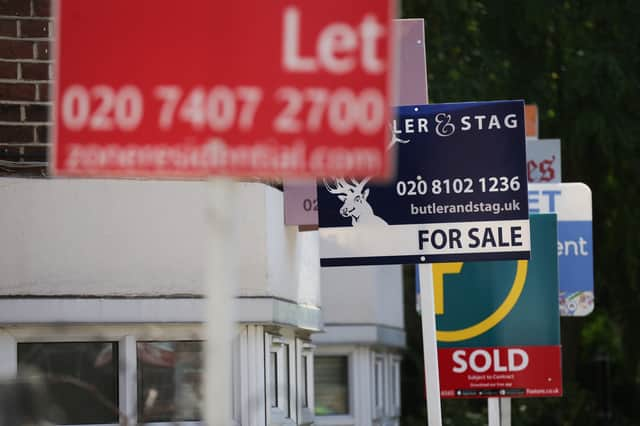Halifax house price index: Property prices jump for second month in a row as sellers abandon the market


House prices have increased for the second consecutive month as the market sees sellers leave the market, according to the Halifax House Price Index. Average house prices rose by 0.5% in November, following a 1.2% rise in the previous month. However, house prices over the past year have actually dropped by 1%, with the typical home now costing £283,615.
Northern Ireland has seen the biggest increase in house prices over the past 12 months, with an average 2.3% increase. Prices have remained stagnant in Scotland, with the average price now sitting at £203,116. Wales and England experienced the biggest dips in house prices. Wales recorded the slight annual fall of 1.5%, with houses now selling for an average of £215,787.
South-east England saw the biggest dip in prices, now 5.7% lower than last year. London is still the UK's hotspot for property but it hasn't been immune to falling prices, with a 3.8% decrease over the past 12 months.
Kim Kinnaird, director of Halifax Mortgages, said: “UK house prices rose for the second month in a row, up by +0.5% in November or £1,394 in cash terms, with the average house price now sitting at £283,615. Over the last year, despite the wider economic headwinds, property prices have held up better than expected, falling by a relatively modest -1.0% on an annual basis, and still some £40,000 above pre-pandemic levels.
“The resilience seen in house prices during 2023 continues to be underpinned by a shortage of properties available, rather than any significant strengthening of buyer demand. That said, recent figures for mortgage approvals suggest a slight uptick in activity levels, which is likely as a result of an improving picture on affordability for homebuyers. With mortgage rates starting to ease slightly, this may be leading to increased buyer confidence, seeing people more inclined to push ahead with their home purchases.
Ms Kinnaird added: “However, the economic conditions remain uncertain, making it hard to assess the extent to which market activity will be maintained. Other pressures – like inflation, the broader cost of living, overall employment rates and affordability – mean we expect to see downward pressure on house prices into next year.”
Comment Guidelines
National World encourages reader discussion on our stories. User feedback, insights and back-and-forth exchanges add a rich layer of context to reporting. Please review our Community Guidelines before commenting.
